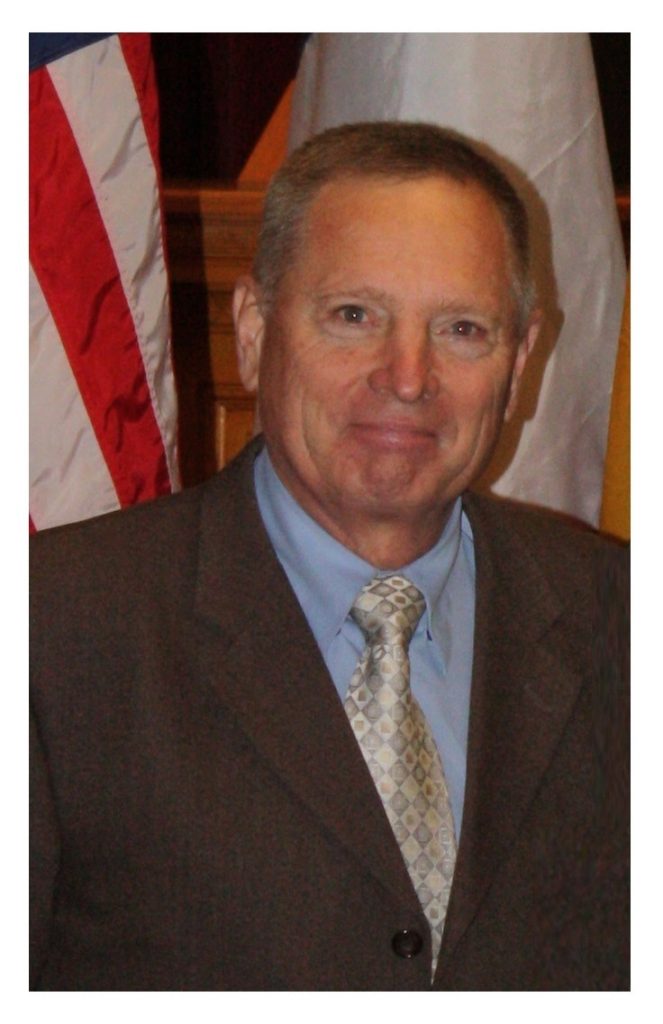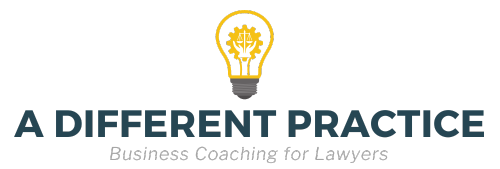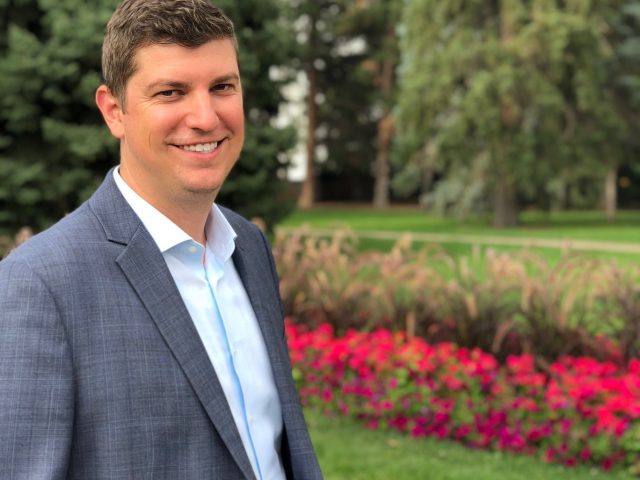
Name: Ric Morgan
Location: I live in rural Southeast Elbert County, on the Palmer Divide. It’s very rural here.
What do you do?
I am a solo practitioner with a general practice. I handle everything from lost horses to water law to domestic relations to tenant side evictions. [Interesting Fact: Ric is one of a half dozen attorneys in Elbert County. Two of the other five attorneys are judges and one attorney is the deputy district attorney.] I am also the founder and coordinator of the Virtual Pro Se Clinics (VPC) program, a small non-profit delivering monthly free legal clinics to local public libraries in 35 counties across Colorado by videoconference.
What is the virtual pro se clinics program and how did it get started?
The services the legal profession currently provides do not align with the legal needs of the average person and the vast majority of people are therefore not getting legal help. Every year since 2013, a half a million Coloradoans came to court and represented themselves (a/k/a self-represented litigants). This issue really concerned me so I started researching a solution.
In 2012 in the Peace River Country in Northern British Columbia, doctors were able to get medical support to remote First Nation villages by using video conferencing software. If the medical profession can do this, why can’t we? After a careful review of the available technology, I contacted a little known startup video conferencing software company called Zoom. I worked with their founder and engineers to shape requirements, (I’m sure I was one of many to do so), but it all helped to develop some of the capabilities Zoom has today which are ideal for virtual legal support. With the VPC program, the idea was to use new videoconferencing technology to capitalize on existing public investment and infrastructure – libraries with huge broadband internet pipes, brick and mortar facilities, librarians – and use that infrastructure to deliver free legal expertise from far away. Eighty percent of attorneys in Colorado are located along the Front Range of the Rockies (where Denver, Boulder, Fort Collins and Colorado Springs are located) and far fewer in more rural parts of the state.
In 2013, we conducted a proof of concept experiment in three rural locations. We stood up free legal clinics in each remote public library and they were very popular and worked really well. Before launching these clinics, we reached out to individual stakeholders within each community to learn about their needs. We have a two-prong approach – first, to help individuals and secondly, to establish partnerships with local communities and stakeholders (e.g., sheriffs, judicial officers, domestic violence shelters, churches, etc.). Today, over 400 VPC free legal clinics are provided each year in 35 counties across Colorado at 46 different public library locations (see the map below for a visual display of the distribution). 26 of the VPC clinics are in rural Colorado counties, and nine are in urban counties.
We work with all other pro bono providers across Colorado to identify clinic locations and coordinate schedules to optimize services. Now, no one has to travel more than 40 or 50 miles to get to any of the libraries with free legal clinics. Of course, during the pandemic we’ve had to regroup and do everything by telephone. Ultimately, we also hope to reinvigorate public confidence in our civil justice system and help people better understand the objectives of the legal system.
How do you recruit volunteers?
Volunteer attorneys are the greatest treasure for our program. Volunteers tend to come to us, but recruiting is a continuing challenge. We receive wonderful support from the state judicial system and the state bar, and Supreme Court Justices will talk about it on their ATJ lecture programs and share flyers. Moreover, the sort of attorneys who do volunteer for our program are exactly the kind of extraordinarily talented and inspirational attorneys that are most likely to get selected for their dream job. More than a few of our volunteer attorneys end up getting elevated to the bench. This is so wonderful for our volunteers of course, but the impact is keenly felt as they move upward.
The VPC clinics cover any Colorado civil issue. Not every attorney is inclined to volunteer for our clinics because of the breadth of issues addressed. In order to guide our volunteer attorneys in addressing this very broad subject matter, I developed the online checkboard to give each volunteer attorney one-click access to all the relevant flowcharts, instructions, statutes, courts rules, court forms, videos and handbooks for each one of over sixty different Colorado civil issues.
Are you from Colorado, and if not, what brought you here?
I came to Colorado in 1971 to go to college, and I’ve considered it home ever since. After college, I joined the Navy. For my last ten years in the Navy, it was impossible for my wife to come along with me, so we found this wonderful place to settle down in Elbert County because its beauty captured our hearts.
What inspired you to go to law school?
It actually wasn’t my idea to go to law school. I was strongly encouraged to do so by others. After I retired from the Navy, my wife and I started raising dairy goats. In 1998, several local families were struggling with difficult legal issues that they felt strongly about. Their reliance on Denver law firms to resolve them was very unsuccessful. After that, three elders from the local Presbyterian Church showed up at my doorstep one day and announced they thought it over and decided that I should use my GI Bill and go to law school. The approach left me speechless, but a year and a half later I gave in and agreed to apply. I was more surprised than anyone when I was accepted. I went to the University of Denver Sturm College of Law and drove back and forth from Elbert County for three years. And then on my 50th birthday, I took the bar exam! Going to law school was the greatest thrill of my life.
What are some of the benefits associated with operating a law firm in a rural area?
I very much enjoy drawing on the experiences of the families that I’m surrounded by. In a domestic violence case for example, the first thing I like to do is bring in the maternal and paternal grandparents to talk. Most of the time, people that I deal with are people I have known for a very long time. In many instances, I know their grandparents, and their parents, and their children. I don’t think attorneys living in urban areas often have this opportunity.
How do you define success?
I define success as our reflection in the lives that we touch. I am very pleased and satisfied when I’m able to positively influence the direction of lives around me.
What do you enjoy doing outside of work?
My wife and I raise dairy goats. A typical day begins early to milk the goats. This usually takes about 45 minutes, and we like to be done milking by 7:00 AM. Milking takes place twice a day and is a great way to start and end each day. My office is about a half a mile from the big house. I usually head there after milking. I meet with clients and do legal work from approximately 8:30 a.m. to 6:00 p.m.
What’s the best book you’ve read recently?
I’m a big fan of Deborah L. Rhode out of Stanford. She has written a bunch of great books. The Trouble With Lawyers has wonderful insight into the legal profession. I also very much enjoy reading Richard Susskind, who has also written some really interesting books.
What is the best advice you’ve received since joining the legal profession?
Don’t take yourself too seriously!
Where do you go, or what do you do or read when looking for inspiration?
When milking, doing chores, or holding a baby goat, a lot of issues that otherwise seem very difficult or complex become simpler to understand. In particular, issues of struggling families seem clearer and help ground me in basic principles and fundamental dynamics.
Years ago, while in law school, the process of taking exams seemed to be difficult and disruptive for the younger students around me. During spring exams I would bring a few baby goats to school in the back of my truck. During lunchtime between exams, I would bring out the babies on the grassy courtyard for my colleagues to hold them, and feed them bottles of milk. It was a transformative event and very rewarding to see their exhaustion melt away, with a baby goat in their arms. Today, this rural lifestyle still helps reinvigorate me to first principles and restore balance in much the same way it did for those frazzled law students so long ago.
If you could wave a magic wand and change one thing about the legal profession moving forward, what would it be?
I get very frustrated with the ‘apartness’ between where the public is and where the legal profession is on a variety of issues. Long-term, this distance erodes the public trust and is damaging for the legal profession. “The public will not long entrust its confidence to a system of justice it often cannot navigate, afford or understand.” Chief Justice Broderick, New Hampshire Supreme Court, 2008
There is a strange paradox to this apartness. The civil justice system is led by the most talented and resourceful people our society can produce. Yet the system they lead can produce such glaring injustices with alarming frequency. No system built by people is perfect, but these injustices are so inconsistent with the caliber of people who lead the civil justice system.
What advice do you have for legal professionals who are tired of the status quo and seeking to chart their own paths and define success for themselves and build lives they love?
You can’t be responsible for what’s going on elsewhere but you are responsible for what goes on within your sphere of influence. Make the needed changes within your own reach to the extent you can, and to make the lives you touch better through your practice of law. If enough people do this, dramatic change will occur over time, and we all will have been a vital part of it.
What gives you hope these days?
We have young people today who are extraordinarily talented and gifted. I am lucky enough to help our local congressperson select young men and women for appointments to service academies. Meeting 2-3 dozen of these very talented and accomplished young men and women each year gives me inspiration and hope for the future. It also makes me appreciate that there are many, many inspirational young men and women in our society, not just those wishing for academy appointments, who will carry our society forward with courage and resolve.
What is one thing you are looking to gain from others in the OPLN community?
I very much enjoy hearing how others are grappling with the challenges of time, energy and direction that we all face, and how they find balance in their lives, and how they make their dreams come true.
What is one thing you are looking to share with others in the OPLN community?
My path is a deliberate choice which doesn’t look much like the path of some other lawyers I know. I hope it is helpful for others to know that viable alternatives do exist, even some that are very different from the path most traveled.






